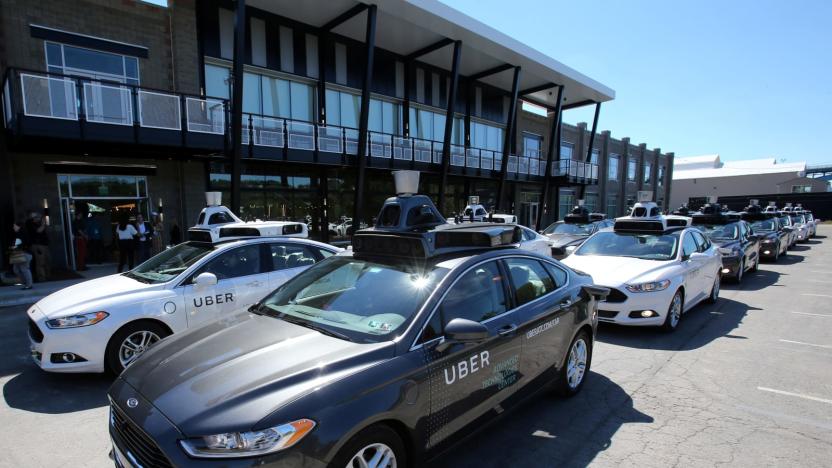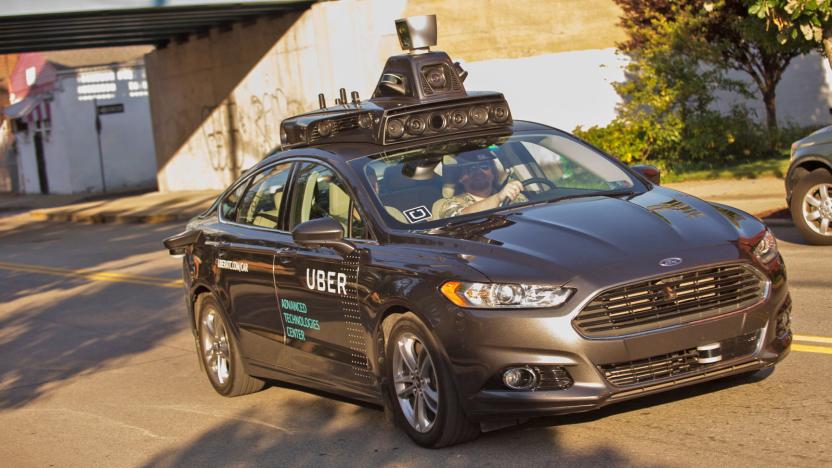judgealsup
Latest

'Jacobs letter' unsealed, accuses Uber of spying, hacking
Waymo's lawsuit against Uber for allegedly stealing technology for self-driving cars hasn't gone to trial yet, because the judge received a letter from the Department of Justice suggesting Uber withheld crucial evidence. That letter, with some redactions, is now available for all to read and it's not good news for Uber. It was written by the attorney of a former employee, Richard Jacobs, and it contains claims that the company routinely tried to hack its competitors to gain an edge, used a team of spies to steal secrets or surveil political figures and even bugged meetings between transport regulators -- with some of this information delivered directly to former CEO Travis Kalanick.

DOJ confirms criminal investigation into Uber vs. Waymo
The civil trial between Uber and Waymo over stolen self-driving technology was supposed to start December 4th, but Judge Alsup announced a delay last month. Now he has unsealed the letter (over objections from the US Attorney's Office in San Francisco) from the Department of Justice that caused the delay. It not only confirms that there is a criminal investigation into Uber's behavior, it reveals a former employee's claim that the company intentionally used "non-attributable electronic devices" (read: burner phones and the like) to conceal use of any stolen technology. In the letter, it also says that the former employee, Richard Jacobs, described a "hypothetical" where two CEOs could meet covertly for a long period of time prior to an acquisition. Two CEOs, like, say, Anthony Levandowski of Otto and Travis Kalanick of Uber.

Oracle begins appeal process in its Java patent case against Google, Android (Update: Google too)
You should know by now that it's never truly over when tech giants resort to legal warfare over their technology, and just as it said it would, Oracle has filed an appeal of the US District Court ruling in its case against Google. In case you'd forgotten, back in May Judge William Alsup found that the structure of its Java APIs were not copyrightable so Oracle had to settle for $0 in damages over its claims that Android infringed on its patents and copyrights. FOSS Patent's Florian Mueller has a full breakdown of what he sees in the case, meanwhile we'll be preparing our fallout shelters for potential Android Armageddon... again. Update: Haven't had enough of paperwork flying back and forth? Good, because according to Bloomberg, Google has also filed an appeal in the case over the judge's decision not to set aside the jury's copyright verdict or order a new trial.

Google to pay $0 in damages to Oracle, wait for appeal
After watching Judge Alsup strike down its patent and Java API infringement claims, Oracle seems to be cutting its losses, agreeing to accept $0 in damages from Google. Confused? So was the Judge, who reportedly responded to the proposal by asking, "is there a catch I need to be aware of?" No catch, but Oracle isn't giving up, stating that it's taking its case to the Court of Appeals for the Federal Circuit. If successful, the appeal could put the two firms back in Alsup's courtroom, perhaps asking for somewhere between the previously proposed $32.3 million and today's sum total of zilch. We'll let you know when the drama comes around again.

Oracle v. Google: Judge finds structure of Java APIs not copyrightable, renders jury infringement verdict moot
Thought the Oracle v. Google litigation fireworks were over? Well, if you weren't aware, during the copyright phase of the trial, the jury found that Google had infringed the structure, sequence and organization of Oracle's Java APIs. However, at the time, Judge Alsup had yet to evaluate the validity of Oracle's API copyright claims upon which that verdict was based. Today, Alsup found that Oracle's argument didn't hold water because it would expand the breadth of copyright holder's rights too far -- in essence, it would allow owners of software code to prevent others from writing different versions to perform the same functions. This ruling renders the jury's earlier infringement verdict moot, and gives Mountain View yet another courtroom victory. Despite this latest defeat, Oracle's sure to run the case up one more rung on the legal ladder, so let the countdown to the appeal begin.


